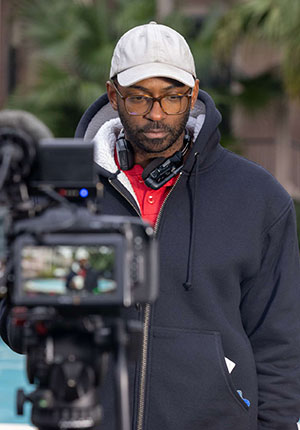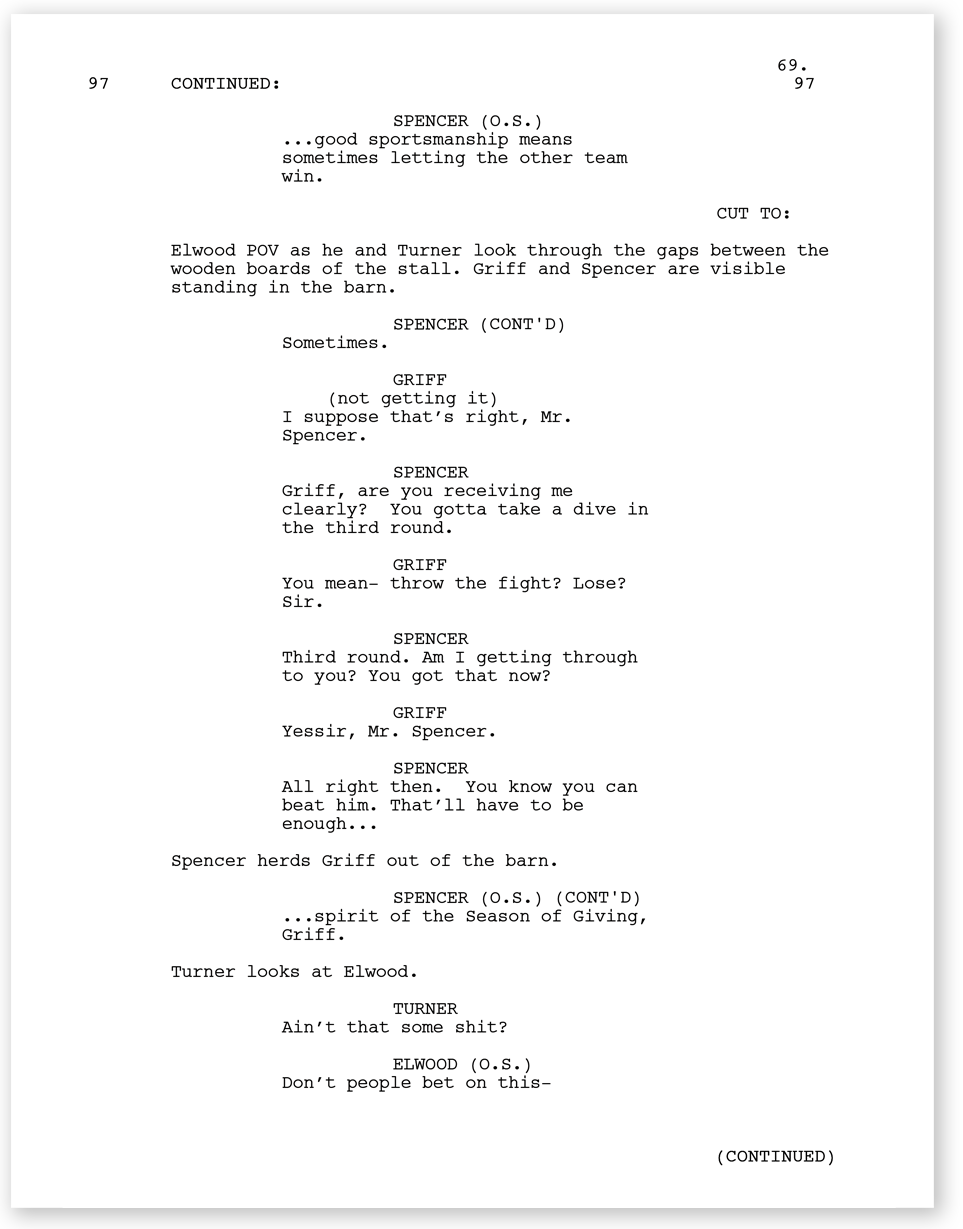One benefit of awards season recognition is that it can get people talking about a film that was released months ago. On the subject of Nickel Boys, co-writers RaMell Ross and Joslyn Barnes—who will receive the Paul Selvin Award at the 2025 Writers Guild Awards—still have plenty to say.
Especially during an interview with Written by conducted on January 21—the day after both the presidential inauguration and Martin Luther King Jr. Day, a pair of events that the filmmakers say invites viewers to consider Ross and Barnes’ adaptation of Colson Whitehead’s Pulitzer Prize-winning novel The Nickel Boys through a different prism.
 Brandon Wilson and Ethan Herisse in Nickel Boys. Photo by Amazon MGM Studios.
Brandon Wilson and Ethan Herisse in Nickel Boys. Photo by Amazon MGM Studios.The Selvin Award “is presented to that member of the WGA whose script best embodies the spirit of the constitutional and civil rights and liberties which are indispensable to the survival of free writers everywhere.” It’s a mission that the two writers agree, “we can definitely stand behind.”
“It’s the essence of the film,” says Ross, who is also Nickel Boys’ director.
“Especially given where we are in the world right now, with disinformation and misinformation being very deliberately created to keep people in a kind of permanent state of crisis and not able to reflect,” adds Barnes, also the film’s producer. “I’ve had so many conversations with people over this last year about fight or flight, how do we re-center ourselves, how do we think beyond that? How do we conceive a new narrative that’s not solely centered on conflict? It comes back to creating and establishing a way of storytelling where you are remaking the ethical relationship, in the case of people who have been marginalized, colonized, brutalized in history, and this story is very much about that.”
Inspired by true events at Florida’s Dozier School for Boys, Nickel Boys follows the friendship of two young men, Turner and Elwood, as they navigate an abusive reform school in 1960s Florida. The time period overlaps with King’s civil rights activism, which is referenced in the film.
“Anti-violence means that if you’re doing nothing about violence, then you become complicit in violence,” Barnes says. “Elwood is so taken with the teachings of Dr. King in terms of what can you do to support human dignity and what can we do to invite people’s attention instead of looking away. Because we’re always invited to look away, and this kind of consumerist culture that we’re in—which is about to go into super maximum overdrive twinned with misinformation—is inviting us to look away, is inviting us even to give up our right to vote. So here is a story that re-centers us in selfless love. It resituates an ethical relationship, and invites us to pay attention. Through artistry with a new kind of experience, that’s what we strove to do.”
With that, Barnes tosses the subject back over to Ross. The longtime friends and frequent collaborators are accustomed to piggybacking on each other’s ideas, but Ross pauses. “Could you take half of what Jos said and say that I said them?” Ross says, laughing./p>

Here is a story that re-centers us in selfless love. It resituates an ethical relationship, and invites us to pay attention.
- Joslyn Barnes
“Man, I love the ethical relationship,” he continues. “Things are very well known across time, but they’re just so easily forgotten and so easily erased. Because the complexity of the state that the culture is in is constantly evolving and being absorbed and then being regurgitated into a theme, it’s hard to apply them to the new imagery. Seeing Elon Musk with the Logan brothers at Trump’s [inauguration] with George Bush behind them, with the guy that runs the UFC; this stuff is mind-boggling. People just fall back into their blind spots, into their self-preservation modes. They’re not situated as in an ethical relationship. It’s a lot easier for things to happen.”
 RaMell Ross on the set of Nickel Boys. Photo by Amazon MGM Studios.
RaMell Ross on the set of Nickel Boys. Photo by Amazon MGM Studios.Ross and Barnes’ creative relationship dates back to their work on the 2018 documentary Hale County This Morning, This Evening, which Ross directed and produced and Barnes co-wrote and produced. For Nickel Boys, the two read the novel shortly before the rights were released for film. They found Whitehead’s plotline clear and easy to follow, almost deceptively so. “Then you get to the end of it and you realize you didn’t follow it at all,” says Ross.
“In fact, you’re sort of led by the nose,” he continues, “and if that’s not a parable for the way that narratives are constantly being overturned or undermined, according to the way in which we’re sort of distracted in contemporary culture, I don’t know what is.”
Ross invited Barnes to co-write. Their process involved passing drafts back and forth, editing each other’s sentences, and plenty of lengthy conversations around ideas inspired by the story. There has been much critical discussion about Ross’s technique to shoot the film as if from Ellwood and Turner’s perspectives. The initial script was written with such specific and technical camera detail that producer Dede Gardner sent it back, convinced that nobody would be able to decipher it, much less shoot it.
“We had to go back and write it in a more conventional script sense,” says Barnes. “I always say that my favorite scripts are the ones that disappear entirely into the fabric of the film. I feel like there’s a way that happened in a really beautiful way. Ideally you don’t notice the writing. It’s actually so seamless.”
“One of the most fun elements is that we were actually writing the script thinking about the way that the characters are seeing their world as opposed to every other script-writing process, which is seeing them in their world,” adds Ross.
The writers were aided by photographs compiled from the exhumation of 55 unmarked graves at the Dozier School. Barnes and Ross cite the work of forensic anthropologist Dr. Erin Kimmerle and the images that came from her findings. The discovery of a penny or a marble in the pockets drove home the realization that these forgotten people were children.
“You look at the Dozier document and you realize that those images…” says Ross, trailing off. “There’s nothing that Joslyn and I could write, nothing that we could film that was more powerful than those images. Just thinking of the words ‘civil rights,’ and the way in which essentially the Civil Rights Movement is written through images, the notion of photography and its photojournalistic positivism of the ’60s and ’70s. We were interested in writing with images as well.”
The writers acknowledge that the progress of Nickel Boys was delayed both by the pandemic and by the 2023 WGA strike.
“We were absolutely pencils down,” says Barnes. “We’re quite determined when it comes to being union members, and we really believed in the importance of the strike and what people stood for. That goes back to Paul Selvin and our respect for him.”







